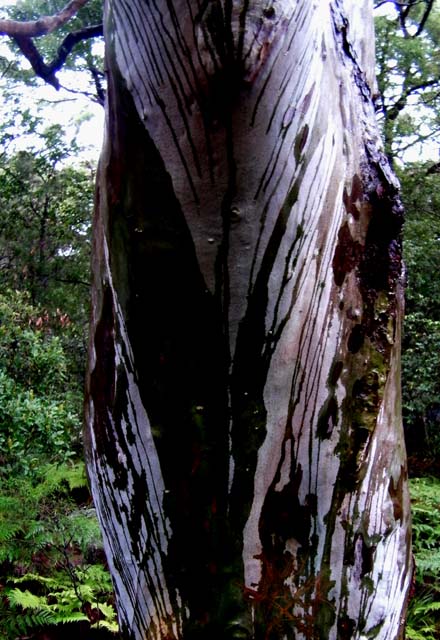Search
Recent comments
- conspiracy....
12 hours 21 min ago - brutal USA....
14 hours 16 min ago - men....
14 hours 37 min ago - oil....
15 hours 13 min ago - system....
16 hours 33 sec ago - not invited....
16 hours 36 min ago - whistleblow.....
1 day 5 hours ago - demosocialism....
1 day 15 hours ago - front cover up....
1 day 15 hours ago - the trick....
2 days 2 hours ago
Democracy Links
Member's Off-site Blogs
the trees of life...

picture by Gus
Johann Hari: A turning-point we miss at our peril
We have the choice of burning all the oil left and hacking down all the remaining rainforests - or saving humanity
Sometimes, there are hinge-points in human history – moments when we have to choose between an exuberant descent into lunacy, and a still, sober voice offering us a sane way out. Usually, we can only see them when we look back from a distance. In 1793, the great democrat Thomas Paine said the French Revolution shouldn't betray its principles by killing the King, because it would trigger an orgy of blood-letting that would eventually drown them all. They threw him in jail. In 1919, the great economist John Maynard Keynes said the European powers shouldn't humiliate Germany, because it would catalyse extreme nationalism and produce another world war. They ignored him. In 1953, a handful of US President Dwight Eisenhower's advisers urged him not to destroy Iranian democracy and kidnap its Prime Minister, because it would have a reactionary ripple effect that lasted decades. He refused to listen.
Another of those seemingly small moments with a long echo is happening now. A marginalised voice is offering us a warning, and an inspiring way to save ourselves – yet this alternative seems to be passing unheard in the night. It is coming from the people of Ecuador, led by their President, Rafael Correa, and it would begin to deal with two converging crises.
...
Here is a textbook example of what is driving both the sixth great extinction and global warming. We have been putting short-term profits for a few ahead of the long-term needs of our species. Every rainforest on Earth is being reduced to the money that can be stripped from it: yesterday, Brazil's Chamber of Deputies voted to slash the amount of the Amazon that must be preserved by landowners. Except this time, for the first time, the people of Ecuador have offered us an alternative – a way to break this pattern. Alberto Acosta, the former energy minister who drew up the plan, calls it a punto de ruptura – a turning point, one that "questions the logic of extractive development" that drilled us into this species-swallowing hole.
Here's the offer. The oil beneath the rainforest is worth about $7bn. Everybody knows that a stable climate, biodiversity and functioning lungs are worth far more than that. But until now, nobody has been willing to pay. Ecuador's democratic government says that, if the rest of the world offers just half of what the oil is worth – $3.5bn – they will keep the rainforest standing and alive and working for us all. In a country where 38 per cent live in poverty and 13 per cent are on the brink of starvation, it's an incredibly generous offer, and one that is popular in the rainforest itself. As one of its residents, Julia Cerda, 45, told New Internationalist magazine: "With oil, the government just sells it to richer countries and we're left with nothing, no birds or animals or trees."
- By Gus Leonisky at 26 May 2011 - 3:01pm
- Gus Leonisky's blog
- Login or register to post comments
looking up the canopy...
picture by Gus.
Arundhati Roy's broken republic ...
Her new book, Broken Republic, brings together three essays about the Maoist guerrilla movement in the forests of central India that is resisting the government's attempts to develop and mine land on which tribal people live. The central essay, Walking with the Comrades, is a brilliant piece of reportage, recounting three weeks she spent with the guerrillas in the forest. She must, I suggest, have been in great personal danger. "Everybody's in great danger there, so you can't go round feeling you are specially in danger," she says in her pleasant, high-pitched voice. In any case, she says, the violence of bullets and torture are no greater than the violence of hunger and malnutrition, of vulnerable people feeling they're under siege.
Her time with the guerrillas made a profound impression. She describes spending nights sleeping on the forest floor in a "thousand-star hotel", applauds "the ferocity and grandeur of these poor people fighting back", and says "being in the forest made me feel like there was enough space in my body for all my organs". She detests glitzy, corporate, growth-obsessed modern Indian, and there in the forest she found a brief peace.
There is intense anger in the book, I say, implying that if she toned it down she might find a readier audience. "The anger is calibrated," she insists. "It's less than I actually feel." But even so, her critics call her shrill. "That word 'shrill' is reserved for any expression of feeling. It's all right for the establishment to be as shrill as it likes about annihilating people."
http://www.guardian.co.uk/books/2011/jun/05/arundhati-roy-keep-destabilised-danger
--------------------
see article at top...